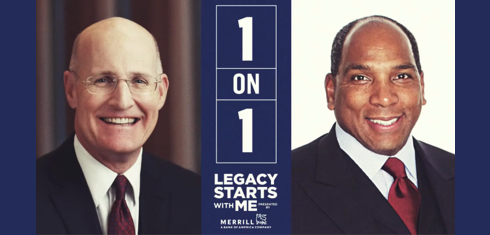Legacy Starts with Me: A Conversation with Black/African American Entrepreneurs
Originally published by 
The Legacy Starts with Me video series, produced in partnership with Black Enterprise, highlights three affluent Black/African Americans who have charted their own paths toward personal and professional success and have also made profound impacts on their communities. In the series we hear from:
- Adenah Bayoh, a successful restaurateur and real estate developer, shares her journey after immigrating to the US and reflects on the hard work she put in to create a new legacy.
- Janice Bryant Howroyd, founder and CEO of Act 1 Group and the first Black woman to own and operate a billion-dollar company, shares how her upbringing and identity helped her achieve historic success.
- Melvin Gravely, CEO of TriVersity Construction, shares how he has invested in himself as an entrepreneur and why he calls Black entrepreneurship a superpower.
To learn more about the financial experiences of affluent Black/African Americans, read our research study Diverse Viewpoints: Exploring Wealth in the Black/African American Community.
Choose your advisor in a more personalized way
All our advisors are committed to putting your needs and priorities first. Find some who match your personal preferences too.


